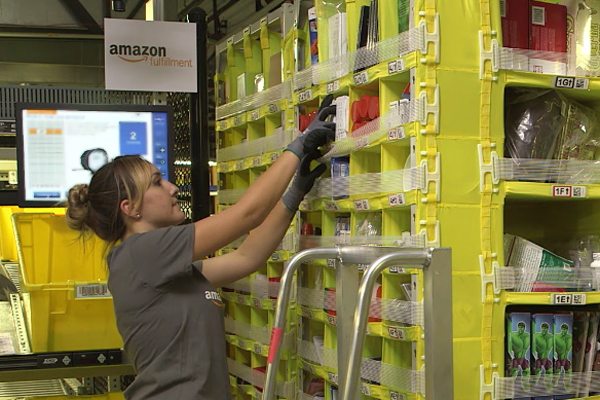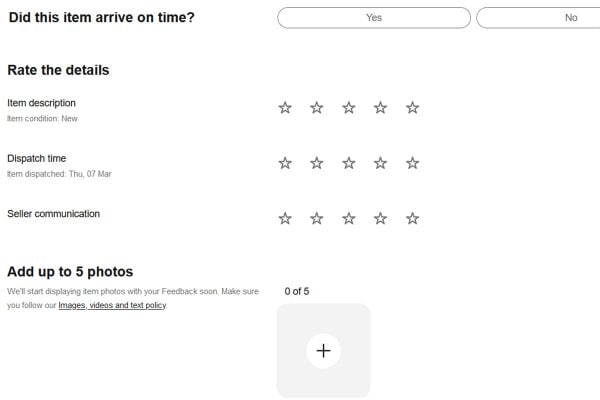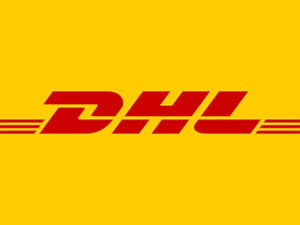One of the most interesting aspects of the Public Accounts Committee of the House of Commons report on VAT fraud on online marketplaces such as eBay and Amazon regards fulfilment houses. By which we mean companies that hold and fulfil stock in the UK on a seller’s behalf.
That could be a service such as Amazon’s own FBA facility or an independent company. In any case, HMRC are going to start investigating soon. And as it stands it’s not clear how many such services even exist in the country.
Here is what the report says: “HMRC does not know how many fulfilment houses are in the UK and is therefore unable to systematically target the most blatant route for online VAT tax evasion. Overseas sellers often choose to export goods to the UK and store them in fulfilment houses (warehouses where goods can be kept before delivery to customers), before selling these goods to UK customers through online marketplaces. The VAT rules require that all traders based outside the EU, selling goods online to customers in the UK, should charge VAT if their goods are already in the UK at the point of sale. Fulfilment houses are therefore a key part of the transaction chain between sellers based outside the EU and consumers in the UK. Some online marketplaces, such as Amazon, also own and operate their own fulfilment houses. HMRC does not know how many fulfilment houses there are in the UK, estimating the number to be somewhere between 500 and 3,000. The Fulfilment House Due Diligence Scheme, due to come into effect in April 2018, will require fulfilment houses to register with HMRC. However, it is not clear how HMRC plans to enforce this requirement. HMRC was receptive to our suggestion that it would make sense to require overseas sellers registering for VAT to specify which fulfilment houses they work with.
Recommendation: HMRC should, as a pre-requisite to the implementation of the Fulfilment House Due Diligence Scheme, undertake a definitive assessment of the scale of the fulfilment house industry, and how it intends the process of registration for the scheme to work efficiently and effectively”
Of all the suggestions in the report this is the most interesting and, potentially most fruitful, because it will hopefully mean when an overseas seller holds stock in the UK that HMRC will have a paper trail.








6 Responses
Hmrc doesn’t even know how many there are.
Very worrying !!! But I’d guess the biggest would be amazon. Too scared to knock on that door.
Been over 10 years.
All they good for is sending ‘daves’ £200 fines for filing 3 days late and scaring little people.
Presuming that a “fulfilment house” can be of any size then HMRC should firmly request from eBay, probably Amazon too, those sellers with a registered address overseas yet whose listings ALWAYS clearly state “Despatched from London” or elsewhere in the EU. Yes, the UK isn’t the only apparent “point of sale”, I’ve clearly seen Chinese and Hong Kong registered sellers with French, Spanish and German “delivered from” addresses.
I’m not saying that ALL do this as part of their attempts to circumnavigate EU Laws, there’s bound to be a few good apples, but I rather think this practise has now become the way the Chinese sellers have got past eBay rules.
Is this practise endemic? YES! Pick any listing category that you know there will be Chinese goods within same, adjust your “choices” to “Items in the EU” only and start looking. When you find a listing that seems either too cheap or there is something not quite right with the wording scroll to the bottom of the page . . . and you’ll almost certainly find that page is enormously blank so you need to keep scrolling. Finally, when you get to the “Registered Seller” bit you’ll be odds on to find a Chinese or Hong Kong address. How many buyers when reading the listing blurb and purchasing from that would waste their time scrolling down an empty page? Yet the Chinese address is “hidden” in clear view.
Now I’m no tax expert and maybe they still get clobbered by EU taxes anyway and this is just a ruse to confuse both eBay and the Buyer . . . but surely they’re doing this by using a physical UK/EU address as a “fulfilment house”?
Ok so are you saying that a UK marketplace seller will say shipped from DE and vice versa?
I agree, there are two low hanging apples in Amazon and eBay.
I don’t buy the conclusion here: “HMRC does not know how many fulfilment houses are in the UK and is therefore unable to systematically target the most blatant route for online VAT tax evasion.”
A Chinese seller, or an Asian seller, or any seller from a low labour cost economy where goods are made (my effort to avoid them and us), or any seller in fact outside EU does not have to worry about import taxes, this is the buyer’s responsibility. Every country has a value below which import duties are not charged as the tax would not pay for the admin cost. Most orders fall below this value. I’m guessing there are creative ways of keeping below the radar wrt tax.
FAO: Admin
Subject: newsletter popup
Can you please make a change to the annoying ‘subscribe to our newsletter’ popup which does not use cookies to remember you said no.
TIA, B.
“Fulfilment House Due Diligence Scheme” What a load of ….
How is that going to work except hit small / medium size businesses working on small margins with extra paperwork and regulations.
Even then sellers will find ways round that and apart from that it will create lots of extra work for HMRC chasing up the paper trail.
Why don’t they take it direct at source, from Amazon & eBay, that is where the money is. A simple rule of anybody being paid over a set figure, £2-3,000 has a set percentage deducted from the payments. HMRC already have set percentage for certain VAT schemes, usually around 7%, this could be reduced to 5%
Sellers would then declare that payment on their VAT return or they could set up a trusted scheme for responsible sellers that would get an exemption, if they wanted.
My recent experience with VAT was:
1. Argued about a repayment on my first return
2. Took months to sort it out
3. Finally agreed it
4. Told me they would keep it on account.
5. Paid it back on the 30th August to a dormant bank account
6. VAT return for end of August showed nothing owing, due to balance on account
7. Last week they tried taking the VAT owing from my new bank account.
I only found this out when I checked my bank statement to find a failed Direct Debit, due to lack of funds and a bank charge of £25.00
Technically I was in breach of not paying my VAT on time, I have since sent all the money back from the dormant account and am still in credit.